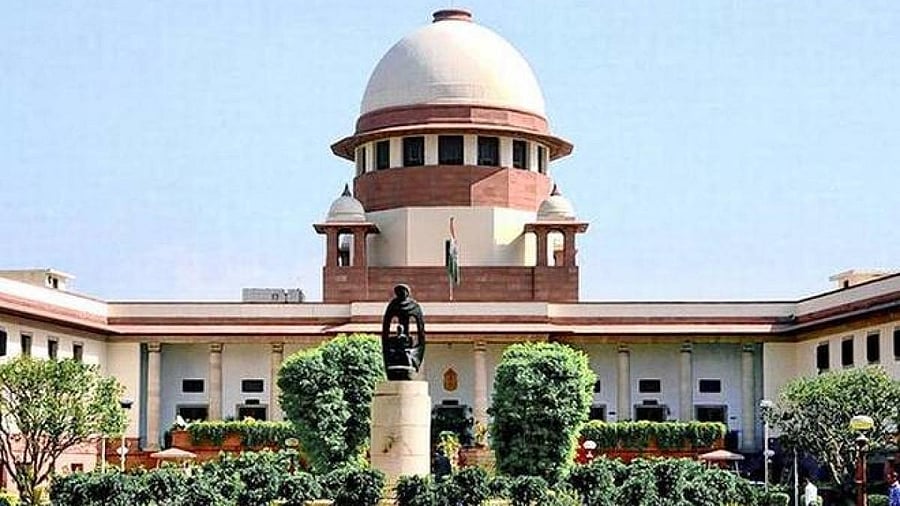
The Supreme Court of India
Credit: PTI File Photo
New Delhi: The Supreme Court has stressed the critical need for accuracy and fairness in media reporting, especially when dealing with matters having the ability to influence public sentiments and alter perceptions, with remarkable speed.
A bench of Justices J B Pardiwala and R Mahadevan said the right to freedom of speech and expression guaranteed under Article 19(1)(a) of the Constitution is paramount, but those working in the media, particularly, individuals in key positions, authors, etc, must exercise utmost caution and responsibility before publishing any statements, news, or opinions.
"The power of the media in shaping public opinion is significant and the press possesses the a potential to impact the integrity of individuals or institutions. Keeping these aspects in mind, publication of the news articles must be done in public interest and with good faith," the bench said.
The court underscored, given its vast reach, a single article or report can resonate with millions, shaping their beliefs and judgments, and it has the capability to cause severe damage to the reputation of those concerned, with consequences that may be far-reaching and enduring.
In this regard, the court also quoted Bulwer Lytton's words, “The Pen is mightier than the sword”.
The bench made these observations in its judgment on February 18, 2025, as it quashed a criminal defamation complaint filed by M/s Bid and Hammer Auctioneers Private Limited against Jaideep Bose and others of the 'Times of India' and other associated publications for publishing alleged defamatory news and articles, due to "procedural irregularities".
The Karnataka High Court on June 18, 2024 rejected their plea for quashing the complaint filed for offences under Sections 499 and 500 IPC and the summons issued by the Bengaluru court.
Upon receiving a private complaint under Section 200 CrPC, the bench said, the Magistrate must mandatorily conduct an inquiry or investigation before proceeding to issue process against the accused, if such accused resides outside the jurisdiction of the court. In other words, the Magistrate must examine witnesses before issuing summons in cases where the accused resides outside the Magistrate’s jurisdiction. This mandatory requirement of inquiry or investigation was introduced through Section 19 of the Code of Criminal Procedure (Amendment) Act (Central Act 25 of 2005) which came into effect from June 23, 2006, it pointed out.
In the case, the court noted, the Magistrate, without a proper examination and inquiry, proceeded to issue summons to the appellant and others, who resided in Mumbai and Kolkata, outside its jurisdiction.
Appellant Bose contended he was the editorial director and he was neither the author nor the editor of the news articles, and his role was merely administrative in nature, with no direct involvement in the publication process. The court also said it is well settled that the Press and Registration of Books Act, 1867 imposed a higher degree of responsibility and liability on an editor. "The key distinction is that unlike an editor, against whom a statutory presumption is imposed, there is no such presumption against the editorial director," it said.
The bench pointed out, defamation under Section 499 IPC necessitates both an intention to harm or knowledge that the imputation is likely to cause harm, and that the imputation must be capable of lowering the reputation of the person in the estimation of others. In other words, the essence of defamation lies not merely in the making of an imputation but in its effect on the perception of the public, thereby impacting the standing of the person in society, it said.
The complainant, however, failed to produce any witness to prima facie establish that the alleged imputations had lowered their reputation in the estimation of others and the Magistrate, after merely reviewing the complainant’s statement, proceeded to issue summons, it said.
In the complaint, the court noted, it was merely alleged that the appellant oversaw the publications, without any averment as to how he was responsible for controlling the selection of contents of the newspaper publications. It, thus, opined a broad, general or blanket statement without specific or substantive details cannot justify the issuance of summons.
